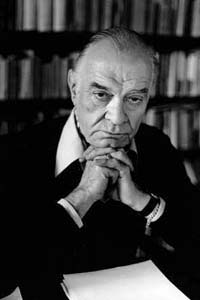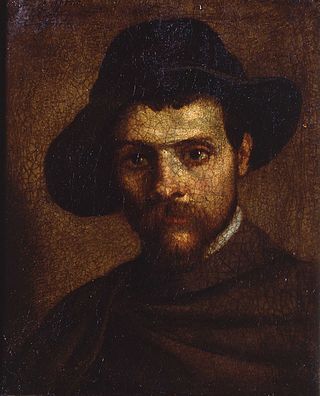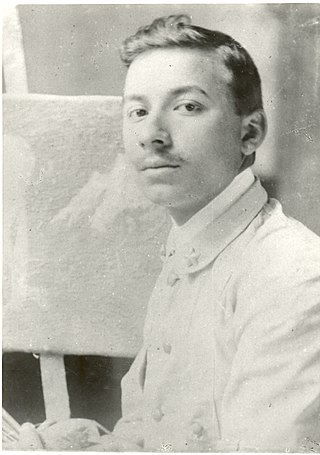Related Research Articles

Carlo Ginzburg is an Italian historian and a proponent of the field of microhistory. He is best known for Il formaggio e i vermi, which examined the beliefs of an Italian heretic, Menocchio, from Montereale Valcellina.

Denys Louis de Rougemont, known as Denis de Rougemont, was a Swiss writer and cultural theorist who wrote in French. One of the non-conformists of the 1930s, he addressed the perils of totalitarianism from a Christian point of view. After the Second World War, he promoted European federalism.

Ippolito Desideri was an Italian Jesuit missionary and traveller and the most famous of the early European missionaries to found Catholic Church in Tibet. He was also the first documented Tibetologist and the first European to have successfully studied both Classical and Standard Tibetan.

Giuseppe Fiorini (1861–1934) was an Italian luthier and is considered one of the most important Italian violin makers. He built his first instrument at the age of 16 while working in Bologna. He established Rieger and Fiorini in Germany from 1888, then lived in Zurich during World War 1 and Rome from 1923.

Alma Franca Maria Norsa, known professionally as Franca Valeri, was an Italian actress, playwright, screenwriter, author, and theatre director.

The Five Days of Milan was an insurrection and a major event in the Revolutionary Year of 1848 that started the First Italian War of Independence. On 18 March, a rebellion arose in the city of Milan which in five days of street fighting drove Marshal Radetzky and his Austrian soldiers from the city.

Netmage is an international festival dedicated to electronic art curated by Xing and produced annually—in the city of Bologna—as a multidisciplinary program of works, investigating and promoting contemporary audiovisual research. The festival was born in 2000 with funds provided by the European Union, when Bologna represented one of the nine major European capital of culture. The festival concentrates on an amalgam of Happenings, environments, and audio/visual installations, it does through a concentration on creative scenes and subcultural communities.

Alessandro Barbero is an Italian historian, novelist and essayist.

Albino Pierro was an Italian poet. He was famous for his works in Lucan dialect, and being nominated for the Nobel Prize for Literature.

Clemente Luigi Donnino Bondi was an Italian poet and translator.

Live Arts Week is a project by Xing, born in 2012 out the fusion of the experiences of the two Bologna festivals (2000>2011): Netmage - International Live Media Festival and F.I.S.Co. - Festival Internazionale sullo Spettacolo Contemporaneo. Live Arts Week takes place in Bologna, Italy, once a year, and it is developed throughout one week in different locations and settings in town.

Igino Benvenuto Supino was an Italian painter, art critic, and historian.

Francesca Melandri is an Italian novelist, screenwriter, and documentary filmmaker. She was the recipient of the Rapallo Carige Prize for Più alto del mare in 2012.

The Basilica Palatina di Santa Barbara is the Palatine Chapel of the House of Gonzaga in Mantua, Italy.

Pietà is an oil on panel painting by Sebastiano del Piombo, executed c. 1516–1517, now in the Museo civico in Viterbo.

Self-Portrait is a 1593 oil on canvas painting by Annibale Carracci, now in the Galleria Nazionale di Parma. It is dated 17 April 1593 on the top left of the canvas.

Giuseppe Palanti was an Italian painter, illustrator, and urban planner, best known for his portraits, notably of Mussolini and Pius XI. He had a long collaboration with Teatro alla Scala in Milan, creating costume, set design and advertising material for multiple opera productions. He was also a major contributor towards the development of the seaside resort Milano Marittima.
Carlo Belli was an Italian art critic, theorist, and writer.

Giuseppe Graziosi was an Italian sculptor, painter and graphic designer.
Pietro Perreau was an Italian librarian and Hebraist.
References
- ↑ Corpo Sottile, Uno sguardo sulla nuova coreografia europea. milano. 2003.
{{cite book}}:|work=ignored (help)CS1 maint: location missing publisher (link) - ↑ Figura N°. Bologna. 2006.
{{cite book}}:|work=ignored (help)CS1 maint: location missing publisher (link) - ↑ Today is OK. Bologna. 2007.
{{cite book}}:|work=ignored (help)CS1 maint: location missing publisher (link) - ↑ Universal Cosmic Murmur. Bologna. 2008.
{{cite book}}:|work=ignored (help)CS1 maint: location missing publisher (link) - ↑ Tribù. Bologna. 2009.
{{cite book}}:|work=ignored (help)CS1 maint: location missing publisher (link) - ↑ color cane che scappa. Bologna. 2010.
{{cite book}}:|work=ignored (help)CS1 maint: location missing publisher (link) - ↑ Segue. Bologna. 2011.
{{cite book}}:|work=ignored (help)CS1 maint: location missing publisher (link)